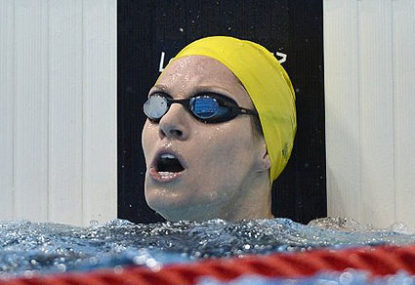'An iconic roster': LeBron, Steph, KD headline all-star cast for Team USA's shot at Olympic glory
LeBron James is going back to the Olympics for the first time in 12 years. Steph Curry is headed to the games for the…

I think it’s safe to say that many, if not the majority of Australians, believe the Australian Olympic campaign was a failure, purely based on a lack of gold medals.
Wrong. We failed because negativity and arrogance underscored our campaign, driven by the Australian media as well as a few of our so called ‘elite athletes.’
We didn’t get off to the best start. The first week was a rude shock to the system, with our young and inexperienced swimming team not living up to expectations.
I find it quite funny that every four years everyone becomes an Olympic expert.
Despite knowing very little about the respective sport we are commenting on, Australians continue to express uninformed opinions.
As we saw in the first week, these opinions turn terribly sour when we aren’t performing.
A negative, disrespectful tone has underlined the majority of views over the last two weeks, whether it is journalists publishing condemning comments or everyday Australians scorning our athletes through Facebook.
How about we scrap the pessimism and actually praise our athletes for making it to the Games in the first place? It should be a celebration of athletic skill that has the power to unite nations.
Success isn’t depicted by gold medals, no matter how much the Australian media, thinks it is. Channel 9 seemingly looked for weakness in their post event interviews.
Asking aggressive questions to athletes who have been unable to compose themselves lead to tears.
Numerous replays of such tears covered our television screens, displaying negativity in an attempt to increase ratings.
We have to remember how much pressure our athletes are under. For the past four years, they have trained religiously to compete on the biggest sporting stage in the world.
The fear of failure would be crippling for the best of us. Getting off the blocks a hundredth of a second slower than needed can mean the last four years have been in vain.
In saying that however, as Australians we do have the right to question why our athletes aren’t peaking correctly after four years leading up the Games.
These questions have substance when our top ranked athletes such as James Magnussen and Emily Seebohm fail to come close to their PBs.
However, the slightest sense of underachievement called for immediate economic enquiries into the distribution of funding.
Kevin Gosper, the most senior Australian member of the International Olympic Committee, put it down to the Gillard Government not pumping enough money into the grassroots.
“The money is the difference between silver and gold,” he said.
This may be, but there must be something more to our performance than that. I think I can speak for the average Australian when I say that as long as our athletes compete to the best of their ability and have a smile on their face while doing so, I’m happy.
Not everything is about money.
An entire country’s criticism shouldn’t motivate young athletes, enjoyment should. What is sport if it is not enjoyed?
It’s nothing when the materialistic need for gold becomes more important. It’s not about paying the taxpayer back with a gold medal.
It’s Sally Pearson collapsing in pure joy after winning by two hundredths of a second, Anna Meares embracing her bitter rival Victoria Pendleton at the end of the race, and it’s the emergence of our brilliant, unheralded sailors.
These moments cannot be measured in financial terms.
I don’t think the Australian media is solely responsible for the intrinsic negativity in Australia’s performance; our athletes played a role too.
James Magnussen is one example. Following much self-adulation, not to mention labelling himself the ‘Missile,’ after failing to live up to his own hype, we found that he is indeed, a fool.
Gold medallist Sally Pearson shone in comparison, not buying into the immature hype, with all of her interviews leading up the finals lasting no more than 30 seconds.
Magnussen is representing a country that prides itself on sportsmanship, and when he says, “I have nothing to say” following the 4×100 men’s relay, Australians have the right to be embarrassed.
Young athletes need to see that a silver or bronze is something to be proud of, as it’s a world class effort.
Professional sportspeople need to show young kids that sport is a genuine love, with a sense of happiness pervading when one achieves their best.
Kids shouldn’t believe its ok to sob in front of the world after being deemed the second best in their respective event.
This too goes for Emily Seebohm. If you don’t want the silver, give it to the bronze medallist, as I’m sure they will appreciate it more.
I can understand one may express genuine disappointment, but shrug off the disappointment with a little humility and show young Australian athletes that if they have tried their best, that’s success in itself.
Here’s hoping that the Australian public, media and athletes shed the negativity and egotism come Rio 2016.
Let’s make the next Australian Olympic campaign a positive one.